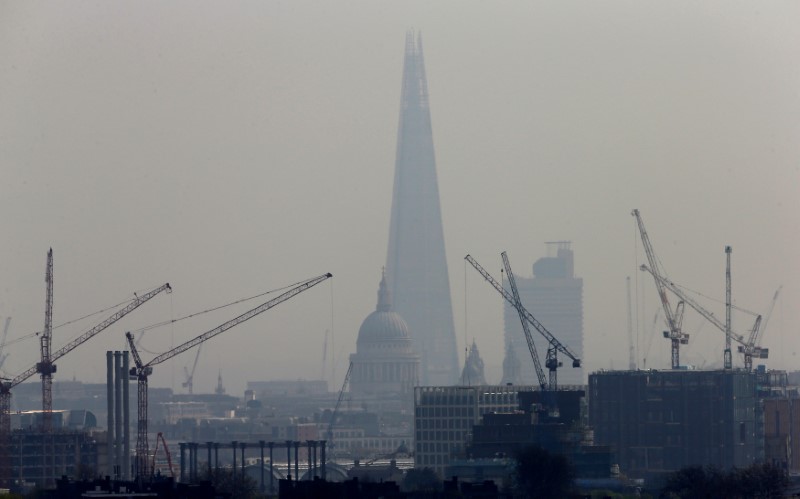By Susanna Twidale
LONDON (Reuters) - Britain's greenhouse gas (GHG) emissions fell by 3 percent last year from 2016 levels, largely due to a decline in coal-fired power generation and marking the fifth straight yearly drop, preliminary government data showed on Thursday.
Output of the heat-trapping gases in Europe's second-largest emitter behind Germany fell to 456 million tonnes of carbon dioxide equivalent (CO2e), the Department for Business, Energy and Industrial Strategy (BEIS) said.
Thursday's data shows Britain's GHG emissions have fallen 43 percent since 1990, meaning it is more than half way towards meeting a legally binding target to cut its GHG emissions by 2050 to 80 percent below 1990 levels.
A breakdown of the 2017 figures showed emissions of carbon dioxide (CO2), the main greenhouse gas blamed for climate change, fell 3 percent to 367 million tonnes.
Energy-sector CO2 emissions fell by 8 percent as coal-fired power production dropped, and was replaced by record output from renewables such as wind and solar.
Separate provisional data, released by BEIS on Thursday, showed power generation from coal plants fell 26 percent in 2017 to 21.36 terawatt hours (TWh), making up less than 7 percent of Britain's total electricity supply.
Britain plans to close all coal-fired power stations by 2025 unless they are fitted with technology to capture and store carbon emissions.
Earlier this month, it also rejected plans for a new open cast coal mine in northeastern England on climate grounds.
Gas-fired power generation fell almost 6 percent in 2017, while renewable power generation from wind and solar soared, the data showed.

Wind power rose 33 percent to a record 40.9 TWh while solar generation was up 43 percent to a record 2.9 TWh.